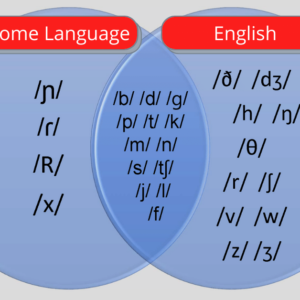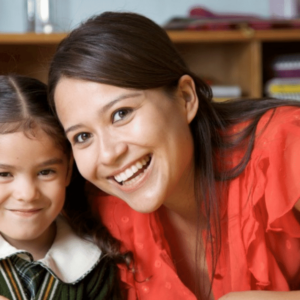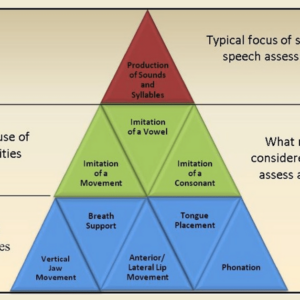Re-Envisioning Re-Evaluations: Strategic Use of Resources to Reduce Caseloads
$22.00

90 MINUTES (0.15 ASHA CEUs)
Course Type: Video – 1 1/2 hours
ASHA Course Code: Developmental Language Disorders – 3010
Speech-language re-evaluations help assess students’ current needs and determine dismissal. However, they’re often underutilized. By maximizing time, integrating progress notes, and leveraging IEP meetings, the reevaluation process can be transformed from a mandatory but not enjoyable task into one of the most important tools SLPs have in their arsenal to identify the perfect goals or set a student on the path to being dismissed.
Additional Information
| Population | School Age |
|---|---|
| Duration | 1.5 hours |
| Credit | .15 Continuing Education Units |
| Topics | Evaluations |
| Format | Video |
FINANCIAL: Scott Prath, M.A., CCC-SLP is an employee of Bilinguistics and receives a salary. Bilinguistics receives royalty payments for online courses.
NON-FINANCIAL DISCLOSURE: Scott Prath does not have any non-financial relationships to disclose.
Scott has been working as a bilingual speech pathologist in Austin, Texas since 2004 and is the Vice President of Bilinguistics. He has worked in Early-Childhood Intervention and currently serves bilingual children in the schools and clinic setting. His research focuses on developing protocols, materials, and professional development to better serve special population such as Autism, VPI, and second-language learners.
Scott presents to Speech-Language Pathologists nationally and internationally, and translates for the Spanish-speaking community in Austin. His conversations and presentations are fun, circuitous rides that weave quotes, history, and humor into any discussion. Scott is masterful and methodical at turning the passions and interests of the staff into the books, presentations, and courses that you see throughout this website.
Understanding the Speech-Language Re-evaluation Process
The re-evaluation process in speech-language pathology is a formal assessment designed to determine whether a student with a communication disorder continues to require specialized support. Unlike initial evaluations, which identify the presence of a speech-language impairment and its impact on educational success, re-evaluations focus on progress monitoring and deciding whether the student’s needs warrant ongoing special education services. This process typically involves standardized testing, observational data, input from teachers and parents, and a review of the student’s progress. While thorough and necessary, the re-evaluation process is complex and resource-intensive, posing challenges for speech-language pathologists (SLPs) and schools alike. Research highlights the growing importance of refining this process to support accurate decision-making and equitable access to services (Johnson & Jacobson, 2021).
Challenges with the Current Re-evaluation Process
The re-evaluation process, as it stands, presents significant logistical and practical challenges. One notable issue is its time-consuming nature. Conducting comprehensive evaluations requires significant preparation, assessment time, and documentation, which can be difficult for SLPs to manage alongside their already heavy caseloads. SLPs often juggle responsibilities including therapy sessions, Individualized Education Program (IEP) meetings, and administrative tasks, leaving limited bandwidth for extensive re-evaluations.
Additionally, the intended purpose of the re-evaluation process—to determine if students no longer qualify for special education services—is frequently unmet. Data suggests that dismissal rates remain low, despite rising special education caseloads. This trend raises concerns about whether the current process effectively identifies students who have outgrown the need for services or whether systemic inefficiencies hinder dismissals. Persistent challenges, such as outdated procedures and limited resources, may inadvertently contribute to keeping students on caseloads longer than necessary, even when they have achieved significant progress (Smith et al., 2022).
Proposed Solutions for Improvement
To address these issues, it is essential to rethink the approach to speech-language re-evaluations. First, these assessments should be distinguished from initial evaluations. Re-evaluations could place greater emphasis on longitudinal data collection rather than relying solely on formal testing. Therapy time and progress tracking can serve as valuable sources of information. For instance, SLPs can integrate data from quarterly progress notes to monitor non-standardized, functional gains made by the student.
Collaborative data gathering also presents an opportunity for efficiency. Meetings with parents and teachers can be structured to gather qualitative input on the student’s communication performance across contexts, thereby reducing the need for duplicative assessments. These conversations allow SLPs to collect insights from key stakeholders who witness the student’s functional communication daily. By leveraging existing data and using a team-based approach, the re-evaluation process can become more streamlined and reflective of each student’s unique progress.
Reforming the speech-language re-evaluation process is essential for balancing the needs of students, SLPs, and the broader education system. By shifting the focus to meaningful, ongoing data collection and integrating collaborative practices, SLPs can more effectively assess students’ eligibility for continued services. These solutions not only address the inefficiencies of the current process but also ensure that evaluations are equitable and responsive to each student’s progress, ultimately enhancing outcomes for children receiving speech-language support.
References:
– Johnson, L. M., & Jacobson, R. K. (2021). Evaluating communication disorders: Challenges and best practices. *Journal of Speech and Hearing Research.*
– Smith, A., Taylor, B., & Greene, K. (2022). Caseload management and dismissal trends in speech-language pathology. *Contemporary Issues in Communication Science and Disorders.*
Participants will be able to:
• Contrast the difference between the reevaluation process and the evaluation process
• Identify four influences on disproportionate identification of diverse students
• Describe five non-traditional uses for data produced from a language sample
• Summarize how interventions sessions can be used to lay the groundwork for effective reevaluations
Time-Ordered Agenda
5 mins: Introduction
10 mins: Traditional models of evaluation and reevaluation
10 mins: Current successes and limitations and dismissals from special education services
10 mins: A re-envisioned reevaluation process
30 mins: Applying language sampling to six unique communication disorders
10 mins: A framework for identifying, testing, and dismissing students that are currently on a caseload
15 mins: Q and A
Need CEUs?

 Share
Share
 Tweet
Tweet
 LinkedIn
LinkedIn
 Pin
Pin
 Email
Email





